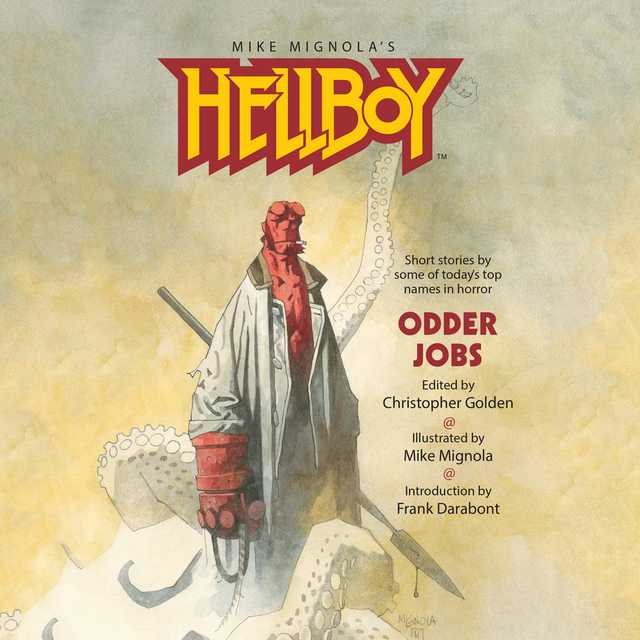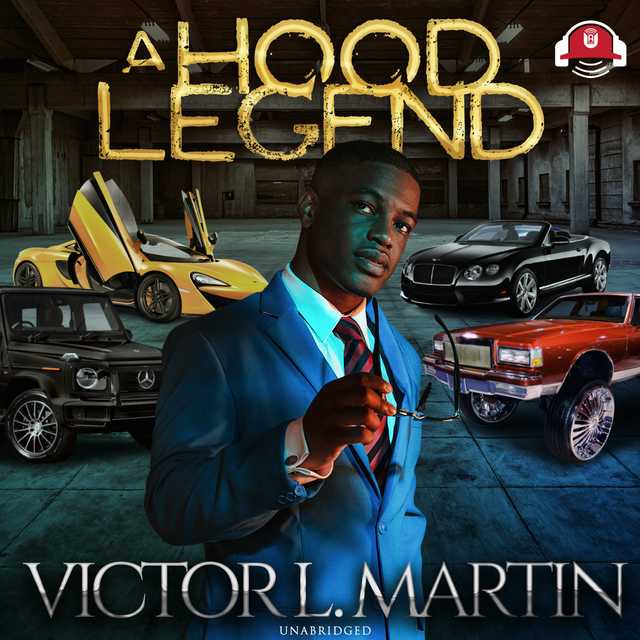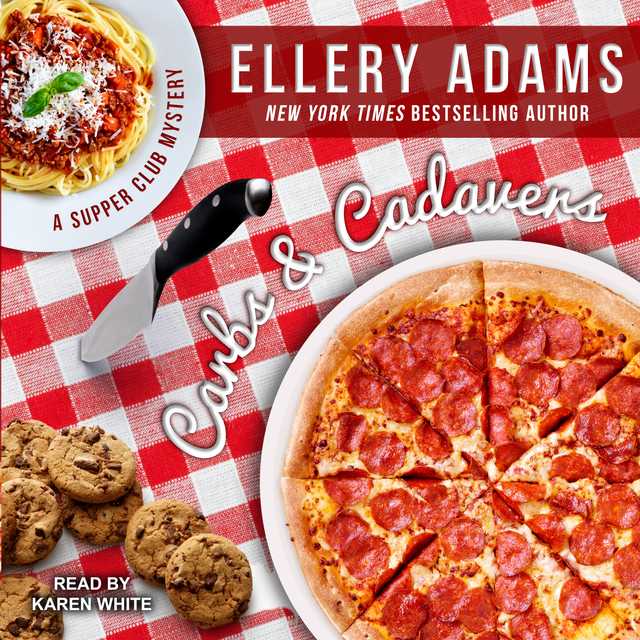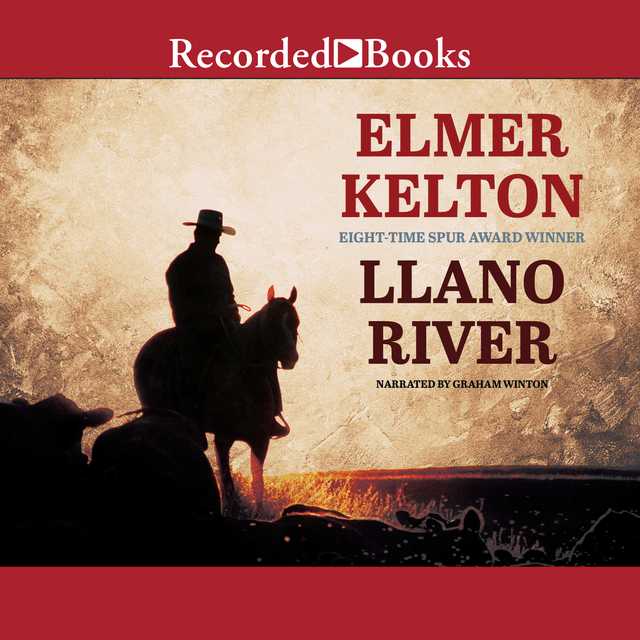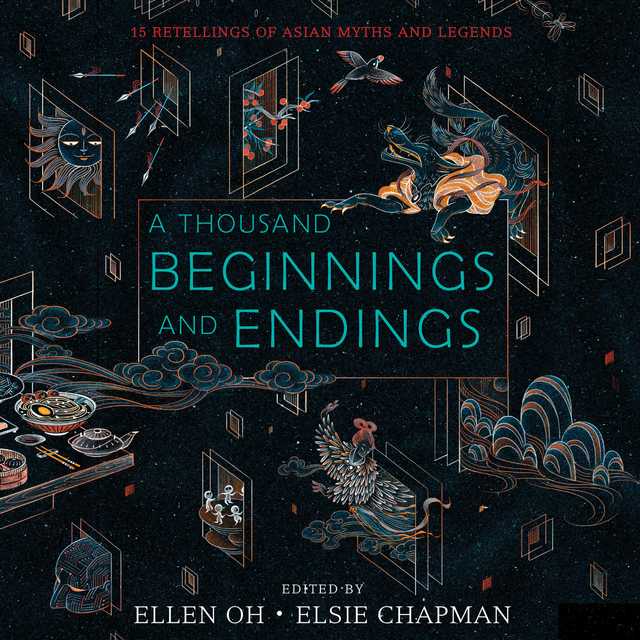Funny Man Audiobook Summary
A deeply textured and compelling biography of comedy giant Mel Brooks, covering his rags-to-riches life and triumphant career in television, films, and theater, from Patrick McGilligan, the acclaimed author of Young Orson: The Years of Luck and Genius on the Path to Citizen Kane and Alfred Hitchcock: A Life in Darkness and Light.
Oscar, Emmy, Tony, and Grammy award-winner Mel Brooks was behind (and sometimes in front the camera too) of some of the most influential comedy hits of our time, including The 2,000 Year Old Man, Get Smart, The Producers, Blazing Saddles, and Young Frankenstein. But before this actor, writer, director, comedian, and composer entertained the world, his first audience was his family.
The fourth and last child of Max and Kitty Kaminsky, Mel Brooks was born on his family’s kitchen table in Brooklyn, New York, in 1926, and was not quite three-years-old when his father died of tuberculosis. Growing up in a household too poor to own a radio, Mel was short and homely, a mischievous child whose birth role was to make the family laugh.
Beyond boyhood, after transforming himself into Mel Brooks, the laughs that came easily inside the Kaminsky family proved more elusive. His lifelong crusade to transform himself into a brand name of popular humor is at the center of master biographer Patrick McGilligan’s Funny Man. In this exhaustively researched and wonderfully novelistic look at Brooks’ personal and professional life, McGilligan lays bare the strengths and drawbacks that shaped Brooks’ psychology, his willpower, his persona, and his comedy.
McGilligan insightfully navigates the epic ride that has been the famous funnyman’s life story, from Brooks’s childhood in Williamsburg tenements and breakthrough in early television–working alongside Sid Caesar and Carl Reiner–to Hollywood and Broadway peaks (and valleys). His book offers a meditation on the Jewish immigrant culture that influenced Brooks, snapshots of the golden age of comedy, behind the scenes revelations about the celebrated shows and films, and a telling look at the four-decade romantic partnership with actress Anne Bancroft that superseded Brooks’ troubled first marriage. Engrossing, nuanced and ultimately poignant, Funny Man delivers a great man’s unforgettable life story and an anatomy of the American dream of success.
Other Top Audiobooks
Funny Man Audiobook Narrator
Stephen Hoye is the narrator of Funny Man audiobook that was written by Patrick Mcgilligan
Patrick McGilligan is the author of Alfred Hitchcock: A Life in Darkness and Light; Fritz Lang: The Nature of the Beast; and George Cukor: A Double Life; and books on the lives of directors Nicholas Ray, Robert Altman, and Oscar Micheaux, and actors James Cagney, Jack Nicholson, and Clint Eastwood. He also edited the acclaimed five-volume Backstory series of interviews with Hollywood screenwriters and (with Paul Buhle), the definitive Tender Comrades: A Backstory of the Hollywood Blacklist. He lives in Milwaukee, Wisconsin, not far from Kenosha, where Orson Welles was born.
About the Author(s) of Funny Man
Patrick Mcgilligan is the author of Funny Man
More From the Same
- Publisher : HarperAudio
- Abraham
- American Gods [TV Tie-In]
- Dead Ringer
- House of Sand and Fog
- Prey
Funny Man Full Details
| Narrator | Stephen Hoye |
| Length | 21 hours 23 minutes |
| Author | Patrick Mcgilligan |
| Category | |
| Publisher | HarperAudio |
| Release date | March 19, 2019 |
| ISBN | 9780062891792 |
Subjects
The publisher of the Funny Man is HarperAudio. includes the following subjects: The BISAC Subject Code is Biography & Autobiography, Rich & Famous
Additional info
The publisher of the Funny Man is HarperAudio. The imprint is HarperAudio. It is supplied by HarperAudio. The ISBN-13 is 9780062891792.
Global Availability
This book is only available in the United States.
Goodreads Reviews
Gero
February 04, 2022
I believe that making people smile is a gift. But there is a runaway smile, tied to the sensitivity of the moment, and a timeless smile, tied to the nature of humans. The slapstick scenes of Mel Brooks' films, some dialogues, the paradoxes (I'm thinking of the camera that zooms in on the window of the house until it breaks the glass, and the diners who turn toward it with blame) will forever arouse hilarity, as long as curiosity and empathy remain in our nature (perhaps we're losing them a bit).
Steven
April 13, 2019
Recently I read ROBIN by David Itzkoff, a biography that described the comic genius and troubled life of Robin Williams. The book was thorough and replete with explanations of why Williams turned out as he did, and the role comedy played in his life. There are few people who can approach Williams’ ability to transform themselves into different characters and employ improvisation. One who might approach Williams’ talent is Mel Brooks, the subject of a wonderful new biography by Patrick McGilligan entitled, FUNNY MAN. Brooks’ background and early life stems from the wave of Russian Jewish immigration to the United States at the turn of the 20th century. Thousands would pass through or remain on the lower east side of Manhattan or move across the Williamsburg Bridge into Brooklyn as Brooks’ family did in 1917. McGilligan describes his subject as a pampered child as the youngest of four brothers and his role in the family seemed to be to make everyone laugh. All was not laughter as at the age of two and a half, Brooks’ father passed away, leaving a void in his life that would affect him throughout adulthood.McGilligan goes on to describe Brooks’ life in minute detail as he ponders his future leading up to World War II, a turning point as he will wind up as an “entertainment specialist.” Though he passed through areas of combat with the US Army as it made its way toward Germany, Brooks was considered a “barracks character” throughout the war. McGilligan does a workman like job describing Brooks’ transition from a grunt who entertained his comrades to scheduling touring entertainment for the USO, hosting programs, and even taking the stage with his comedy act. By 1946, Brooks found his enlistment extended an extra year where he continued his “entertainment” responsibilities.McGilligan’s narrative is replete with numerous watershed moments that altered the course of Brooks’ career, personal life, attempts at psychological analysis to explain Brooks’ actions, and a careful rendering of each of his films. McGilligan’s approach is fascinating though at times the constant entrance into the world of “psychobabble” can be annoying. Important turning points are many and the key to Brooks’ career is his association with Sid Ceasar dating back to the late 1940s. Brooks would become an integral part of “Club Ceasar,” a group of writers and later directors and producers who wrote for the Show of Shows and the Ceasar Hour in the 1950s. The group includes Larry Gelbart, Carl Reiner, Mel Tonkin, Lucille Kallen, and Howard Morris. McGilligan takes the reader inside the writer’s room (called “the jockstrap”) for the Ceasar’s programs and the mayhem which was a daily occurrence. He explores the relationships among the writers and how Brooks fit in on a personal and professional level. We witness Brooks’ obnoxiousness, crudeness, temper, rudeness, but also his overwhelming comedic talent. Kallen would describe “writing scripts was like throwing a magnetized piece of a puzzle into a room with the other pieces racing toward it.” Reiner would always play his straight man and try and keep him out of trouble and their friendship would last for decades as he always indulged Brooks’ outbursts. Of course, McGilligan launches into an explanation of how Ceasar was a father figure for Brooks, who was trying to fill the void in his fatherless life. The author follows Brooks’ career carefully from the Catskills, early television, and finally film pointing out how he was able to navigate the “comedic writing world” and the roadblocks that he had to overcome. But the key to McGilligan’s narrative in dealing with the Show of Shows and Ceasar Hour apart from the insights into the writer’s relationships was how the history of comedy was shaped by them for decades.Brooks’ personal life receives extensive coverage particularly his two marriages. The first to dancer, Flora Baum provides insights into what kind of character Brooks really was. During their marriage and relationship Baum readily gave up her own career and the couple would have three children. Once the philandering Brooks found himself in a failed marriage, he did his best not to own up to his financial obligations toward his soon to be ex-wife and children. Brooks would miss alimony and child support payments on a regular basis and when he finally made it big with films like Blazing Saddles and Young Frankenstein his duplicitous nature came to the fore as he was able to avoid sharing his new found wealth with his first family through the approach taken by his lawyers. His second marriage to actress Ann Bancroft followed a different pattern. They had one child, but Bancroft was a stronger person who did not let Brooks run roughshod over her as Baum had. She had an exceptional career of her own and was equal to her husband in talent and wealth. They did have a happy marriage and they were able to pursue separate careers which is probably why their marriage was so successful.McGilligan digs down into Brooks’ personality issues. For years he was afraid of dying before the same age as his father. He was a hypochondriac who really was never sick. But he would use his hypochondria to learn all he could about illness and diseases from books and medical journals and freely offered medical advice to friends. His own psychiatrist, Dr. Clement Staff diagnosed him as having “anxiety hysteria,” a phobia where the mental aspects of anxiety are emphasized over any accompanying physical symptoms. His overly aggressive personality and sometimes crude comedic impulses sprang from defense mechanisms as he desperately tried to please his absent father, getting even with those who had rejected him in his past, and resentment for having been born short, poor, and Jewish. Brooks himself would explain the choice of some of his characters from a Freudian perspective, i.e., in the film The Producers Leopold Bloom would be considered his ego, and Max Bialystock his id!The strongest part of McGilligan’s narrative is his review of the history of comedy in the 1960s and 1970s. The program, Get Smart is a good example of how comedy was evolving, and the role Brooks played. Perhaps an even more important component of the narrative is McGilligan’s dissection of Brooks’ film career. The constant reference to “Springtime for Hitler” an idea that Brooks worked on for a decade and its evolution into the film The Producers is fascinating. The description of the actual shooting of the film with the novice director Mel Brooks was eye opening as his insecurities concerning a project that was so much a part of his life are completely exposed. One of Brooks’ best decisions was to cast Gene Wilder as Leon Blum in the film and for the next few years Wilder would become Brooks’ alter ego and the two would emerge as the key to the success of several future films.McGilligan digs deep into the origins of Blazing Saddles which emerged from the novella Tex X written by Andrew Bergman. Brooks loved westerns, wanted to skewer the genre, and told his writers to “write the craziest shit.” McGilligan’s details are marvelous especially how Brooks cast the film. His first choice for the black sheriff was Richard Pryor, but the comedian was too controversial for Warner brothers, so the part was taken by Cleavon Little, then an unknown singer-actor. The substitution of Gene Wilder as the “Waco kid” at the last minute was genius and proved to be the key to the film’s success. These were lucky breaks and Brooks knew it.McGilligan will unravel the production process taking the reader behind the scenes of Brooks’ approach to directing and finally starring in his own movies, including how the films were edited and distributed. He will continue the process with all of Brooks’ major films including Young Frankenstein, High Anxiety, Space Balls, Silent Movie etc. Though some where more successful than others and reflected Brook’s obsession to be accepted by the critics they will reflect an evolution away from more crude dialogue and offensive scenes.If there was anyone who competed with Brooks during the proliferation of his films it was Woody Allen, who McGilliigan brings up several times as he compares the critiques and popularity of the work of both men, especially when Allen’s Sleeper and Annie Hall were so successful. A major difference between the two according to Milligan was that Allen invited audiences into his semiautobiographical fictions, in which his lead characters often behaved as variants of himself. Brooks’ films had little or nothing to do with his private self. Perhaps Brooks success as a director and comedic actor was due to his marriage to Ann Bancroft as it appears it was no accident that his career took off after their marriage.Brooks will branch out with the creation Brooksfilms in the early 1980s. Brooks will develop into a shrewd producer-director; however, his main successes were the films, Elephant Man and My Favorite Year. Brooks will shift back to the bad taste excesses that had made earlier films a success with History of the World Part I. McGilligan analyzes the film in detail and the result is a series of skits that spoof historical events with song and dance routines which are hysterical, i.e., “The Inquisition” and others. The critics were split on its quality which did not approach the popularity of his earlier successes in the United States but did well in foreign markets. Brooks’ last major accomplishment was bringing The Producers to Broadway for a six-year run.Overall, McGilligan describes the differences of the “nice” Mel, and the “bad” Mel throughout the book. This dichotomy is a useful tool in understanding Brooks, and McGilligan handles it well. McGilligan is a veteran show business biographer and has written a monograph that reflects enormous research and extensive knowledge of the industry. The main drawback to the book is that there is so much detail at times plowing through the narrative can become cumbersome, however it is an interesting book that explores American comedy, focusing in large part the role that Jews played.
Dave
April 18, 2021
Pretty solid bio by Milwaukee writer McGilligan on an entertainer I honestly didn't know too much about besides viewing a few of his films. But Melvin Kaminsky ( aka Mel Brooks ) was the youngest of 4 sons growing up in a Jewish home in NYC and pretty much always the funny man. He liked to make people laugh and literally still does to this day into his 90's. The book traces Brooks and his two marriages, children, television writing for Sid Caesar's show and into his movie and broadway musical work. McGilligan does a great job putting it all out there from the heights to the warts of Brooks' career and I found myself enjoying the read.
Daniel
February 10, 2022
Patrick McGilligan, our premiere biographer of Hollywood, does his usual exemplary work here. Brooks comes across as someone very funny -- despite his declining record on film -- and a not very nice person. It's a complex portrait, and provides much detail about his early career. Worth reading, but those who see Brooks as a beloved figure will find much that's disturbing.
Frances
September 05, 2019
It can be a challenge to review a biography or memoir, in that you have to consider the writing separately from the subject's life. As one of my college friends said when we first listened to Arlo Guthrie's "Alice's Restaurant," it's not fair to say whether you like it or not because that would be like saying "I like (or don't like) your life." And who are we to judge?That said, the author does an admirable job of recounting the life of Mel Brooks, ne Melvin Kaminsky. In this exhaustive (and, sometime, exhausting) biography, we learn everything there is to know about the writer-director-producer-funny man, from his convoluted and demanding contracts and his income to his relationships with family, friends, and ex-friends (who are legion).If you open this book expecting a barrel of laughs, you'll be highly disappointed. This biography is a serious examination of what the author calls "the two Mels," i.e., the nice Mel, and the not-so-nice Mel, and there's plenty of excruciating detail about the latter. It's not much of a surprise to read that Brooks is a rude and needy attention-hog, but, at the very least, it's disappointing to learn how shabbily he treated his first wife and their three children, not just after the marriage soured but right out of the gate. There's ample evidence that, even when he was well on his way to becoming a wealthy man, he was (and remains), frankly, a greedy skinflint. Yet he's been known for occasionally incredible acts of kindness and generosity. His idea of directing a movie is screaming at and humiliating the actors. The problem with Brooks is that you never know which Mel he's going to be at any given moment.Despite his flaws, Mel Brooks has made millions of us laugh until our faces hurt. We watch his movies and Broadway shows and listen to his Emmy-winning albums over and over again, and laugh just as hard the 20th time as we did the first. He is, arguably, a comic genius. And maybe that's enough.
Russell
November 11, 2020
Comprehensive biography of Mel Brooks, born Melvin Kaminsky in New York City. This book captures the struggle of Brooks' eventual success, years in coming despite his recognized comic genius. The best part of the book is the focus on each of Brooks' projects, starting with his eventual wedging himself into Sid Caesar's early TV "Your Show of Shows" writers, through the development of his movies, including "The Producers", "Blazing Saddles", "Young Frankenstein", and "High Anxiety." McGilligan gives a balanced view of Brooks' ability to inspire both tremendous loyalty and lifelong animus in his collaborators. The happy ending, of sorts, to this biography is Brooks mellowing in his later years, and finding the Broadway success he'd always sought in the musical production of "The Producers."
Daniel
July 20, 2019
More like "Funny Asshole."
Steve
August 10, 2019
I'm torn on this one. It is a biography, so it naturally lacks the heart and honesty of an autobiography. It has a lot of details, dates, dollars... so it is a very interesting puzzle that was put together. It is well written and the contract details throughout Mel's career are very interesting.My main struggle is that it paints a very unflattering picture of Mel. The younger Mel always came in late, was loud-mouthed and always wanted the main credit where it wasn't merited. He comes across as a bully who lacks the discipline to create and follow through on an idea. He was a good "topper" who could touch up other's ideas, but then he wanted the full credit. Through most of his mid-career, he seems to be more concerned with the financial aspects of his contracts than the quality/creativity of his work. No matter how much (or how little) he contributes, he demands the full credit - mainly for the financial repercussions. For example, Young Frankenstein was mostly Gene Wilder's idea and script, but the credit went mainly to Mel - no surprise the two didn't work together after that. Mel (and his lawyer) demonstrated other-worldly business acumen, but Mel should have been more focused on the product. The Producers was one of the first Broadway shows that was priced so high it keeps out the riff-raff (like me) and it was more of a money grab than a creative decision. Those high rates have not gone down since. A true artist would want everyone to have access to their craft, but it seemed that Mel would rather make more money than have "regular Joes" actually be able to afford to see his musical.Mel was also a crappy father and husband to his first family. There's a passage that suggests he hurried a financial settlement with his first wife so that her lawyer would not hear about the up-coming success that will be Blazing Saddles. He wanted to short his wife and three kids so he can make more money!His genius was more as a second banana. He could come in and improvise (like on talk shows) and be extremely funny. But he was not good at sitting down and doing the hard work of hammering out a full story. In the few tries he had more control, the projects were not as successful. I love the first half of The Producers, Blazing Saddles and Young Frankenstein. After that... meh. I wanted to love the man whose name is on these projects, but its hard to love the man who wanted all the credit and did less of the heavy lifting than was first assumed.In his later years, he seemed to become more of a mensch, but considering all of the headaches and financial shenanigans he put most of his collaborators through, it comes across as hollow and a day late & dollar short!
Kevin
May 13, 2019
Prolific biographer Patrick McGilligan ("Alfred Hitchcock: A Life in Darkness and Light") offers a massive warts-and-all biography of writer/director/producer/actor Mel Brooks. Brooks is a member of the exclusive club of EGOT winners (those who have won an Emmy, Grammy, Oscar and Tony award), but his success and critical acclaim were hard-won. As a member of the writing team of the classic Sid Caesar TV series "Your Show of Shows", Brooks was often dismissed as a gagman who tossed out funny lines rather than a comedy writer who constructed scenes. All his eventual screenplays were co-authored with others.McGilligan skillfully profiles Brooks's two sides--the bullying, raging and credit-grabbing "Rude Crude Mel" and the "Nice Mel," who performed discreet and generous acts of kindness and was a lightning rod for laughter in public. "Behind his façade as a perpetual amusant were depths of self-loathing and a fury at the world," writes McGilligan. The behind-the-scenes tales of "The Producers", "Blazing Saddles", "Young Frankenstein" and other films show Brooks's need for collaboration at constant odds with his desire to control everything. Much like his relationship with critics: "Brooks desperately yearned for the approval of critics while at the same time resenting their power and opinions," writes McGilligan. Brooks joked, "Critics are like eunuchs at an orgy--they just don't get it." But he also quoted negative reviews verbatim decades later.This fascinating and exhaustive biography presents a complicated and immensely talented man whose inner demons fed his hilarious output of films, TV series and albums. This thorough and candid biography of Mel Brooks showcases his outrageously funny creative talents and his prickly and litigious side.
Steve
February 01, 2019
A must-read for Mel Brooks fansI loved this book. Author Patrick McGilligan tells a great story of Mel Brooks’s life and career. But the book is more than that; it is also a history of American comedic television. I’m a big Brooks fan and I couldn’t put the book down. But there is a darker side to Brooks that McGilligan also describes that is equally as fascinating as Brooks's comedic side. As a biography in general I think this book is well worth reading. But for anyone familiar with Brooks’s work, it is a must read.Disclosure: I received a complimentary copy of this book via Edelweiss for review purposes.
John
November 07, 2019
This really flowed well. Mel doesn't always come out well but his work if fairly presented.
John
April 28, 2020
Superb attention to detail or tedious minutiae? It may depend on your age group, as McGilligan goes all the way back, e.g. an entire chapter entitled “1952”, two years before I was born! The detail here is so polished however, that it would be strictly academic for me to glean much from this portion of the book. But hang in there, something will ring a bell, whether its “Your Show of Shows”, “The Producers”, “Blazing Saddles”, “Young Frankenstein” or “Spaceballs”. Enjoyment of the book may also depend on your special interest. A hefty portion is concerned with behind the scenes machinations of who wrote what and got paid and credited before the material was plagiarized, stolen, optioned, rewritten, and finally aired, filmed or scrapped entirely. The web of collaborators on a particular piece is accurately reported but can make for an exhausting read. And if your bag is financing, there is an (over?) abundance of deal making reportage.Another curious aspect of the book is its heavy reliance on block quotes from trade journals and newspaper reviews. The industry standard “Variety” is referenced over eighty times in the index, and magazine and newspaper reviews are presented, where available, for each production that Brooks had a hand in.Unfortunately, much of this can feel like filler, and McGilligan essentially admits this. Due to Brooks propensity for litigation, the author had a tough time getting people on record. But this is my chosen guilty pleasure, pop music and movie tomes, and this one undeniably stands out as one of the better written.
Jim
August 10, 2022
A very entertaining book about a very talented (EGOT winner), very funny man. It goes into great detail about his early life in Brooklyn with his mother and brothers (his father died when Brooks was 2). It also details how he was always funny, always the class clown, and made the usual Catskills circuit but later made his bones with Sid Caeser. It goes through a lot of the background of his great ("Blazing Saddles," "Young Frankenstein") and not-so-great ("Dracula: Dead And Loving It.") And just when you think his career is played out, he comes out with a musical of "The Producers" which won 12 Tony Awards.That's the good news. The bad news is that if you read this you may not like Mel Brooks, the man as much as you like Mel Brooks, the funny guy. While by all accounts he had a great marriage with his second wife Anne Bancroft, he was a pretty lousy husband to his first wife, a showgirl named Florence Baum. After their divorce he did everything he could to hide his increasing wealth from her, constantly crying poor mouth (despite the fact they had three kids together.) Mel is one massive ego and he always had to have the main credit and sometimes screwed others out of theirs. I could go on but you get the idea. After reading the book I came away with more respect for Brooks as an artist, less as a person. Sure, he's a sweetheart now but he's 96.Anyway, read it. It's good.
Gary
February 14, 2022
I didn’t set out to read two Mel Brooks books over the course of a few months, but after reading Mel’s autobiography, All About Me, I definitely felt something was missing. While it’s an enjoyable read, it’s really all about Brooks’s movies and plays, with just a bit of personal info, especially on his early years and stint in the army in WWII, leading up to his role as a writer in the classic 1950s TV series, Your Show of Shows, starring Sid Caesar. From that point on, the book is pretty much all-career, all the time. And boy, is there a lot missing. Let’s just say that Funny Man: Mel Brooks by Patrick McGilligan covers all the bases, the good, the bad, and the ugly. And there’s a lot of the latter two; Mel Brooks is a very complicated man who isn’t quite the beloved comedy figure we’ve all come to know—or think we know. This is definitely a warts-and-all bio, like Sheila Weller’s Carrie Fisher book, and Brooks comes across as petty, jealous, and, at times, not a very nice guy. McGilligan goes into a lot of detail on Brooks’s career, much more so than Brooks himself in his autobiography. This is a dense, dishy book and it doesn’t pull any punches. If you love Mel Brooks, stick to All About Me, because this may change your mind about him; if you’re fascinated with a real look behind the curtain, then Funny Man is for you.
Brett
June 27, 2020
At 550 pages, this is an exhaustive biography that I have mixed feelings about. On the one hand, this is excessively well researched and the "behind the scenes" relationships and struggles are detailed with a clear intention of being both praiseworthy and bitterly honest. On the other, this is sometimes too developed in the minutia of the business and becomes clunky and hard to read with the overzealous nature of McGilligan to tell the whole story, when a light treatment would suffice. Still, for the die-hard Mel Brooks fan, this book will give you a better look at the man, his family and personal struggles, his creative energy, and his comedic life. It is very honest in its assessment, so if you want to read a light history of the man's work, this is not it. The first 200+ pages of his early life in TV and stage is a little rough to get through, but the last 200 on his film career and return to the stage is very well done.
Michael
October 01, 2019
This book was interesting in that it revealed much about Mel Brooks that I never knew. I appreciated that this was a "warts and all" book. I never knew that Brooks had been working on "The Producers" for ten years before he made the movie. It began as a novel, morphed into a potential play, and only then became a movie. "Springtime for Hitler," interestingly, didn't become part of this project until after a few years.The biggest thing I took away from this book is the change the collapse of the studio system has meant for filmmakers. McGilligan goes into the negotiations that go before the making of each Brooks movie. One has to wonder what this costs in terms of energy and creativity.Definitely recommended for anyone who thinks they know about Mel Brooks.
Matt
March 06, 2022
Enjoyable and comprehensive biography, although reading it made me realize what a strange, petty, vain person Mel Brooks turned out to be. Patrick McGilligan’s writing style is straightforward and somewhat plain. I still have copies of his George Cukor and Alfred Hitchcock bios on my shelves. This particular one will be released out to our “sharing library.”
Jason
October 27, 2019
I’ve read a number of books about Brooks, but this one is has so much more detail and research than any I have read in the past. There was quite a bit of eye opening material in the book, that unfortunately made me really question how great a man he is. As a fan it’s disappointing to see how he bullied, ignored and used so many people in his life. Great book, not so great a man it seems.
Most Popular Audiobooks
Frequently asked questions
Listening to audiobooks not only easy, it is also very convenient. You can listen to audiobooks on almost every device. From your laptop to your smart phone or even a smart speaker like Apple HomePod or even Alexa. Here’s how you can get started listening to audiobooks.
- 1. Download your favorite audiobook app such as Speechify.
- 2. Sign up for an account.
- 3. Browse the library for the best audiobooks and select the first one for free
- 4. Download the audiobook file to your device
- 5. Open the Speechify audiobook app and select the audiobook you want to listen to.
- 6. Adjust the playback speed and other settings to your preference.
- 7. Press play and enjoy!
While you can listen to the bestsellers on almost any device, and preferences may vary, generally smart phones are offer the most convenience factor. You could be working out, grocery shopping, or even watching your dog in the dog park on a Saturday morning.
However, most audiobook apps work across multiple devices so you can pick up that riveting new Stephen King book you started at the dog park, back on your laptop when you get back home.
Speechify is one of the best apps for audiobooks. The pricing structure is the most competitive in the market and the app is easy to use. It features the best sellers and award winning authors. Listen to your favorite books or discover new ones and listen to real voice actors read to you. Getting started is easy, the first book is free.
Research showcasing the brain health benefits of reading on a regular basis is wide-ranging and undeniable. However, research comparing the benefits of reading vs listening is much more sparse. According to professor of psychology and author Dr. Kristen Willeumier, though, there is good reason to believe that the reading experience provided by audiobooks offers many of the same brain benefits as reading a physical book.
Audiobooks are recordings of books that are read aloud by a professional voice actor. The recordings are typically available for purchase and download in digital formats such as MP3, WMA, or AAC. They can also be streamed from online services like Speechify, Audible, AppleBooks, or Spotify.
You simply download the app onto your smart phone, create your account, and in Speechify, you can choose your first book, from our vast library of best-sellers and classics, to read for free.
Audiobooks, like real books can add up over time. Here’s where you can listen to audiobooks for free. Speechify let’s you read your first best seller for free. Apart from that, we have a vast selection of free audiobooks that you can enjoy. Get the same rich experience no matter if the book was free or not.
It depends. Yes, there are free audiobooks and paid audiobooks. Speechify offers a blend of both!
It varies. The easiest way depends on a few things. The app and service you use, which device, and platform. Speechify is the easiest way to listen to audiobooks. Downloading the app is quick. It is not a large app and does not eat up space on your iPhone or Android device.
Listening to audiobooks on your smart phone, with Speechify, is the easiest way to listen to audiobooks.












